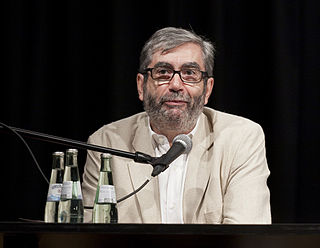A Quote by Barbara Ward, Baroness Jackson of Lodsworth
[To the cultures of Asia and the continent of Africa] it is the Western impact which has stirred up the winds of change and set the processes of modernization in motion. Education brought not only the idea of equality but also another belief which we used to take for granted in the West-the idea of progress, the idea that science and technology can be used to better human conditions. In ancient society, men tended to believe themselves fortunate if tomorrow was not worse than today and anyway, there was little they could do about it.
Quote Topics
About
Africa
Also
Ancient
Another
Anyway
Asia
Belief
Believe
Better
Brought
Change
Conditions
Continent
Could
Cultures
Education
Equality
Fortunate
Granted
Human
Human Condition
Idea
Impact
Little
Men
Modernization
Motion
Only
Processes
Progress
Science
Science And Technology
Set
Society
Take
Take For Granted
Technology
Than
Themselves
Today
Tomorrow
Up
Used
Used To Be
West
Western
Which
Winds
Winds Of Change
Worse
Related Quotes
But the idea of science and systematic knowledge is wanting to our whole instruction alike, and not only to that of our business class ... In nothing do England and the Continent at the present moment more strikingly differ than in the prominence which is now given to the idea of science there, and the neglect in which this idea still lies here; a neglect so great that we hardly even know the use of the word science in its strict sense, and only employ it in a secondary and incorrect sense.
Pictures are the idea in visual or pictorial form; and the idea has to be legible, both in the individual picture and in the collective context - which presupposes, of course, that words are used to convey information about the idea and the context. However, none of this means that pictures function as illustrations of an idea: ultimately, they are the idea. Nor is the verbal formulation of the idea a translation of the visual: it simply bears a certain resemblance to the meaning of the idea. It is an interpretation, literally a reflection.
A text makes the word more specific. It really kind of defines it within the context in which it is being used. If it is just taken out of a context and presented as a sort of object, which is what - you know, which is a contemporary art idea, you know. It is like an old surrealist idea or an old cubist idea to take something out of context and put it in a completely different context. And it sort of gives it a different meaning and creates another world, another kind of world in which we enter.
The truly apocalyptic view of the world is that things do not repeat themselves. It isn't absurd, e.g., to believe that the age of science and technology is the beginning of the end for humanity; that the idea of great progress is delusion, along with the idea that the truth will ultimately be known; that there is nothing good or desirable about scientific knowledge and that mankind, in seeking it, is falling into a trap. It is by no means obvious that this is not how things are.
The idea that each individual has intrinsic, God-given value and is of infinite worth quite apart from any social contribution - an idea most pagans would have rejected as absurd - persists today as the ethical basis of western law and politics. Our secularized western idea of democratic society owes much to that early Christian vision of a new society - a society no longer formed by the natural bonds of family, tribe, or nation but by the voluntary choice of its members.
This is the law of prosperity: When apparent adversity comes, be not cast down by it, but make the best of it, and always look forward for better things, for conditions more prosperous. To hold yourself in this attitude of mind is to set into operation subtle, silent, and irresistible forces that sooner or later will actualize in material form that which is today merely an idea. But ideas have occult power, and ideas, when rightly planted and rightly tended, are the seeds that actualize material conditions.





































